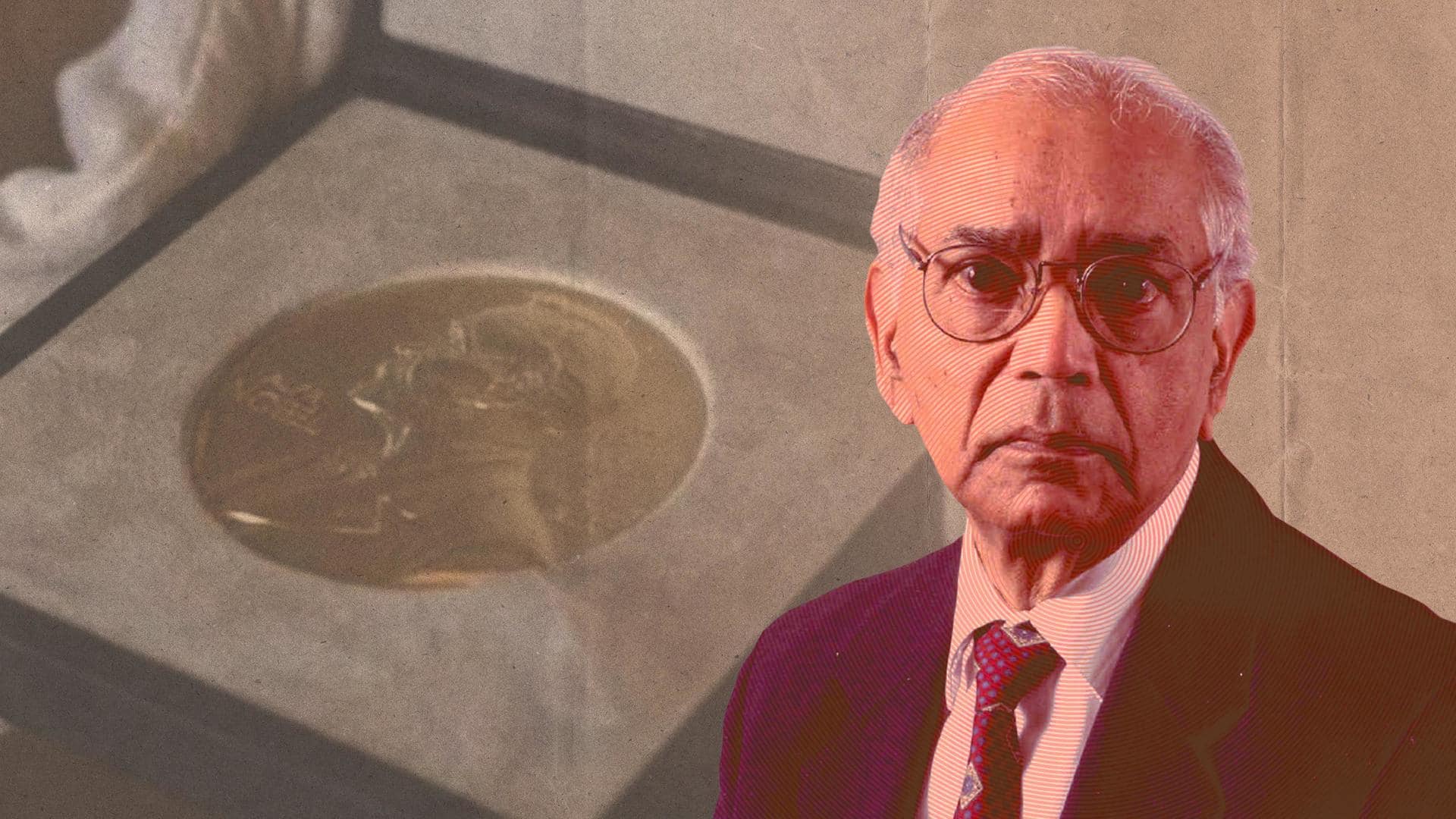
102-year-old Indian-American mathematician honored with Math 'Noble Prize'
What's the story
Well-known Indian-American mathematician and statistician Calyampudi Radhakrishna Rao will be felicitated with the 2023 International Prize in Statistics. The prize is equivalent to the Nobel Prize in the field of statistics. Rao received the award for his extraordinary work 75 years ago that transformed statistical thinking. The award, established in 2016, is given out once every two years to an individual or team.
Prize money
The award comes with prize money of $80,000
"Rao's work, over 75 years ago, continues to exert a profound influence on science," the International Prize in Statistics Foundation stated. The award comes with a prize of $80,000 and Rao will receive the award in July at the biennial International Statistical Institute World Statistics Congress in Ottawa, Ontario, Canada. The prize is awarded "for major achievements using statistics to advance science and technology."
Groundbreaking paper
Rao's groundbreaking paper was published in 1945
According to the American Statistical Association, Rao, aged 102, is a living legend whose work has "not just influenced statistics" but also "economics, geology, genetics, national planning, medicine, biometry, anthropology, and demography." Rao's groundbreaking paper of 1945 was published in the Bulletin of the Calcutta Mathematical Society. His paper was titled "Information and accuracy attainable in the estimation of statistical parameters."
Paper
Bulletin of the Calcutta Mathematical Society published Rao's paper
The paper was included in the book Breakthroughs in Statistics, 1890-1990. "In his remarkable 1945 paper published in the Bulletin of the Calcutta Mathematical Society, Rao demonstrated three fundamental results that paved the way for the modern field of statistics and provided statistical tools heavily used in science today," the Foundation stated. Rao was only 25 at that time.
Fundamental results
Rao demonstrated three fundamental results in his paper
Camer-Rao lower bound was the first of the three results. It gives a lower estimate for the variance of an unbiased estimator. The second result Rao-Blackwell Theorem offers a process by which a possible improvement in the efficiency of an estimator can be obtained. The third result led to the establishment of "Information geometry" which is the study of decision-making using geometry.
Fields of education
The results have been applied to different fields
The Cramer-Rao lower bound can be applied in fields of radar systems, spectroscopy, signal processing, multiple image radiography, quantum physics, risk analysis, and multiple image radiography. The Rao-Blackwell process is of great importance in the fields of computational econometrics, particle filtering, and stereology. Information geometry has been used to boost the understanding and optimization of Higgs boson measurements at the Large Hadron Collider.
Career
Rao has held several important positions in his career
Rao started his career in Cambridge at the Indian Statistical Institute and the Anthropological Museum. He also held important positions like the Director of the Indian Statistical Institute, University Professor at the University of Pittsburgh, and Eberly Professor and Chair of Statistics and Director of the Center for Multivariate Analysis at Pennsylvania State University.
Information
Rao received the Padma Bhushan in 1968
Currently, Rao is working as a professor emeritus at Pennsylvania State University and Research Professor at the University at Buffalo. In 1968, he received the Padma Bhushan, and in 2001 the Padma Vibhushan from the Government of India.